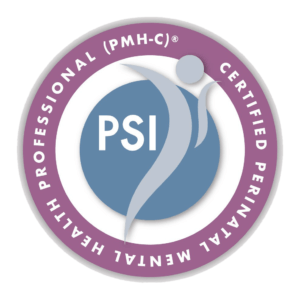
The importance of mental health cannot be overstated. It impacts every aspect of our lives – from how we think and feel to how we handle stress and make choices.
Despite its significance, it’s easy to neglect our mental well-being in our daily routines. Here are 10 tips for taking care of your mental health.
Tip #1 Staying Active, Staying Positive
Physical activity is not only excellent for your body, but a gym session or simple walk can do wonders for your mental health. Exercise helps release endorphins, the body’s natural mood lifters, and provides an effective relaxation technique, reducing levels of stress and anxiety.
Working out regularly also contributes to better sleep, a more positive outlook, increased self-esteem, and the ability to concentrate more efficiently on daily tasks.
Tip #2 Practice Mindfulness and Meditation
Mindfulness and meditation techniques are powerful additions to your mental health routine. By learning to stay present and focused, you can shut out the mental noise of past regrets and future fears.
This can lead to a reduction in stress and a clearer, more balanced mindset. Meditation doesn’t need to be a lengthy practice; even a few minutes a day can yield significant benefits.
Tip #3 Cultivate Healthy Sleep Habits
Adequate and quality sleep is the foundation of good physical and mental health. In our busy world, it’s tempting to cut back on sleep, but doing so can lead to various issues, such as irritability, reduced concentration, and difficulty managing stress.
Aim to go to bed and wake up simultaneously each day to improve sleep quality, create a relaxing bedtime routine, and make your sleeping environment as comfortable as possible.
Tip #4 Nourish Your Body and Your Mind
A balanced diet is essential for not only physical health but mental well-being as well. The foods you eat can significantly impact your mood and energy levels.
Consuming a diet rich in fruits, vegetables, whole grains, lean proteins, and healthy fats can help stabilize your energy and mood. Also, avoid skipping meals, which can lead to irritability and physical stress on the body, significantly influencing mental health.
Tip #5 Connect with Others
Humans are social beings, and building and maintaining positive relationships can help support and improve mental health. Discussing your issues with friends, family, or other trusted individuals can go a long way in problem-solving.
Social connections also provide an avenue to share experiences, offer and receive advice, and bolster self-worth. If you’re struggling, remember it’s okay to seek help.
Tip #6 Set Manageable Goals and Prioritize Tasks
Setting manageable, realistic goals for yourself and breaking them down into achievable steps is critical for combating feelings of being overwhelmed. This approach can help foster a sense of accomplishment and boost your self-esteem.
It’s equally important to prioritize tasks, focusing on immediate needs and those with long-term benefits to avoid being buried under a to-do list.
Tip #7 Spend Time in Nature
Spending time in nature can be incredibly soothing to the mind. Being in natural surroundings has been linked to reduced levels of stress, anxiety, and depression.
Whether it’s a stroll in the park or a hike in the woods, soaking in the beauty and tranquility of nature can be a restorative experience.
Tip #8 Limit Your Screen Time
While technology is a formidable tool, excessive screen time can have a detrimental effect on mental health. Social media, in particular, can create feelings of inadequacy, jealousy, and a distorted sense of reality.
Aim to set boundaries on your screen time and engage in activities that don’t involve digital devices. This can help reduce stress and promote better mental well-being.
Tip #9 Practice Gratitude
Taking the time to reflect on the things you’re thankful for can significantly improve your mental health. Gratitude can shift your focus from what you lack to what you have, which can improve your overall perspective and attitude.
Beginning or ending your day with a simple journal entry listing things you are grateful for can be a powerful positive reinforcement.
Tip #10 Get Professional Mental Health Help When Needed
If you’re struggling with your mental health, remember that it’s okay to seek professional help. Mental health professionals are trained to help you understand and manage your mental well-being.
Just as you would see a doctor for a physical ailment, it is equally important to speak to a mental healthcare professional who can provide support, whether through therapy, counseling, or medication, when necessary.
Mental Health in Phoenix, AZ
Looking after your mental health is an ongoing commitment. By implementing these ten tips into your lifestyle, you take proactive steps towards ensuring your mental well-being remains a priority.
If you think you or someone you love is struggling with a mental health problem and seeking comprehensive care, visit us here at My Buoyant Health. Our highly experienced and board-certified psychiatric and mental health nurse practitioner, Russell Horning, offers diagnosis and treatment of a wide range of mental health conditions.
In addition to offering services like medication management, psychiatric evaluation, health coaching, SPRAVATO, and life transition counseling, we also educate our patients on taking care of their mental health.
For more information about us or to schedule your consultation, don’t hesitate to fill out our online appointment request form or contact us at (602) 503-2832.




